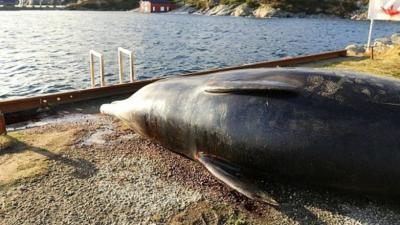

by Alexa Erickson, Collective Evolution
Take a look around you: How much of what you see is made of plastic? There’s likely an alarming amount of this silent killer.
As most people know, plastic never biodegrades, but it does break down, releasing the toxic additives in plastic products, like flame retardants, antimicrobials, and plasticizers, into the environment. This puts our health and the health of other animals at risk, particularly since many of these chemicals affect our endocrine systems, a fragile set of hormones and glands that affect every organ and cell in the body.
Plastic bags, for instance, are especially harmful to marine animals. Typically beginning as litter on beaches, streets, and sidewalks, stormwater runoff and overwater flushes them through storm drains and right into creeks, streams, and rivers that connect to the ocean. Many marine animals mistake the plastic bags for food, and once consumed, the plastic bioaccumulates, which can result in the chemicals producing excess estrogen. Researchers have even found male fish with female sex organs as a result.
Sea turtles are one of the most affected species in the marine environments, with one in three leatherback sea turtles reported to have plastic (most of which is bags) in their stomach. As Mike James, a marine biologist at Dalhousie University in Halifax, Nova Scotia, explains, “Eating something that is plastic can’t be good for you, whether it leads to death or not.”
Shocking photos from Norway reveal another member of marine life suffering from plastic bags, as researchers examining a whale carcass discovered 30 plastic bags in its stomach, along with other human waste. Spotted off the coast of Norway, the goose-beaked whale was euthanized after becoming stranded, and the carcass brought to Denmark for examination by academics at the University of Bergen.
“The findings are not surprising,” admitted zoologist Dr. Lislevand Lislevand. “But clearly it is sad to discover such large quantities.”
Lislevand believes the whale had been unable to digest any food for a while, saying he is “afraid to estimate how long it could have taken before the stomach was totally full.”
To think our littering resulted in the starvation and toxicity of an innocent animal is horrifying, but it’s a reality we must discuss if we want to stop such an epidemic from continuing. And the images serve as a reminder that humans, given so much power on this planet, have the opportunity to give life or take life.
“In this case, the plastic particles accumulated and created a barrier in the system,” continued Lislevand.
The carcass of the whale will be preserved and later displayed at the University of Bergen.
This whale’s story, though disturbing, isn’t unique or uncommon. In fact, whales all around the world have been found with plastic garbage in their stomachs.
The World Economic Forum estimated that by 2050, there will be more plastic than fish, by weight, in the Earth’s oceans. It’s also thought that at least 150 million tonnes of trash are currently floating in the oceans today.

